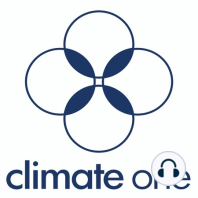59 min listen
REWIND: Should Nature Have Rights?
FromClimate One
ratings:
Length:
56 minutes
Released:
Jan 14, 2022
Format:
Podcast episode
Description
If corporations can be legal persons, why can’t Mother Earth?
In 2017, New Zealand granted the Whanganui River the full legal rights of a person. India granted full legal rights to the Ganges and Yamuna rivers, and recognized that the Himalayan Glaciers have a right to exist. In 2019, the city of Toledo passed the Lake Erie Bill of Rights with 61 percent of the vote, but then a year later, a federal judge struck it down.
As Lindsey Schromen-Wawrin, an attorney who represented Lake Erie, explains, the problem stems from a 500-year history of Western property law. Our legal system grants rights to property owners, but not to property itself.
“If we’re treating ecosystems as property, then ultimately, we as property owners have the right to destroy our property and that fundamentally has to change,” Schromen-Wawrin says.
Rebecca Tsosie, a law professor focused on Federal Indian law and Indigenous peoples’ human rights, says there are other rights frameworks to consider. “If we go into Indigenous epistemology, many times it’s a relational universe that comes with mutual responsibility.”
Guests:
Lindsey Schromen-Wawrin, attorney, formerly with the Community Environmental Legal Defense Fund
Rebecca Tsosie, Regents Professor of Law at the University of Arizona; Co-Chair, Indigenous Peoples’ Law and Policy Program
Carol Van Strum, author of A Bitter Fog, activist
Learn more about your ad choices. Visit megaphone.fm/adchoices
In 2017, New Zealand granted the Whanganui River the full legal rights of a person. India granted full legal rights to the Ganges and Yamuna rivers, and recognized that the Himalayan Glaciers have a right to exist. In 2019, the city of Toledo passed the Lake Erie Bill of Rights with 61 percent of the vote, but then a year later, a federal judge struck it down.
As Lindsey Schromen-Wawrin, an attorney who represented Lake Erie, explains, the problem stems from a 500-year history of Western property law. Our legal system grants rights to property owners, but not to property itself.
“If we’re treating ecosystems as property, then ultimately, we as property owners have the right to destroy our property and that fundamentally has to change,” Schromen-Wawrin says.
Rebecca Tsosie, a law professor focused on Federal Indian law and Indigenous peoples’ human rights, says there are other rights frameworks to consider. “If we go into Indigenous epistemology, many times it’s a relational universe that comes with mutual responsibility.”
Guests:
Lindsey Schromen-Wawrin, attorney, formerly with the Community Environmental Legal Defense Fund
Rebecca Tsosie, Regents Professor of Law at the University of Arizona; Co-Chair, Indigenous Peoples’ Law and Policy Program
Carol Van Strum, author of A Bitter Fog, activist
Learn more about your ad choices. Visit megaphone.fm/adchoices
Released:
Jan 14, 2022
Format:
Podcast episode
Titles in the series (100)
Peter Barnes, Tomales Bay Institute, Co-Founder of Working Assets by Climate One
